How many glasses of water do you drink on a daily basis? If it is more than 9-13 glasses, chances are that you might be overdoing the water intake. If you think that it is just water and won’t impose any negative impacts on your health, you do need to have a better perception about overhydration.
It is important that you keep a very close eye on the amount of water you are consuming on a daily basis because the same can end up imposing a lot of issues on your health without you even realizing the repercussions.
By the end of this article, it is important that you keep an eye out on the symptoms and find ways to get rid of overhydration and combat the side effects that do come along with it.
What is Overhydration?
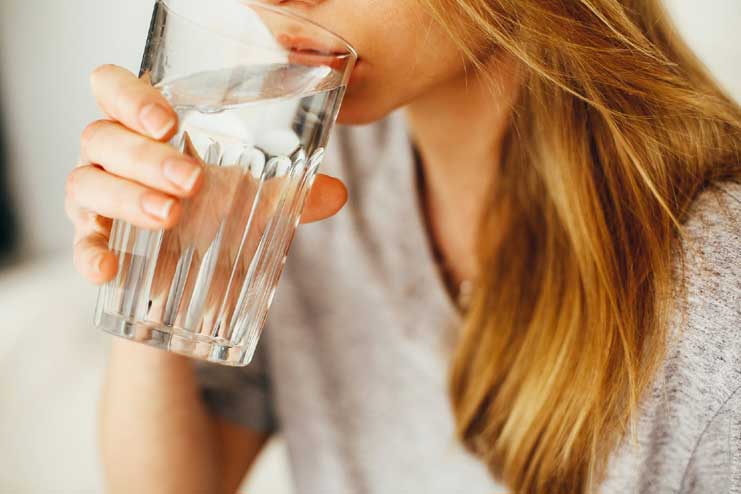 While the water levels in women fluctuate between 45-60% and for men, 50-65% water levels, anything within a margin more than 10-20% of the required levels can end up causing impacts on the functioning of the organs in the body.
While the water levels in women fluctuate between 45-60% and for men, 50-65% water levels, anything within a margin more than 10-20% of the required levels can end up causing impacts on the functioning of the organs in the body.
Overhydration is the condition in which the body has more water levels than what is normal can end up causing an imbalance in the overall body functions, thus exerting negative impacts on the overall functioning of the body as a whole. It is best suggested to ensure that you do keep certain things in mind when it comes to the amount of water that you are drinking.
Symptoms of Overhydration
 While overhydration is a condition, the early diagnosis of this condition isn’t always possible because of how vague the symptoms are. It is thus important to ensure that you do keep an eye out on the signs and symptoms to help with the proper diagnosis because the lack of overhydration treatment can lead to a number of health complications.
While overhydration is a condition, the early diagnosis of this condition isn’t always possible because of how vague the symptoms are. It is thus important to ensure that you do keep an eye out on the signs and symptoms to help with the proper diagnosis because the lack of overhydration treatment can lead to a number of health complications.
Some of the common symptoms of overhydration that you need to look out for include:
- Nausea
- Vomiting
- Headache
- Changes in the mental state
- Confusion
- Muscular weakness followed by spasms or even cramps
- Loss of consciousness
- Coma (in extreme conditions)
- Hyponatremia
Causes of Overhydration

When it comes to the causes of overhydration, the possibilities are quite extensive. It is important to ensure that you do keep an eye out on the causes and if it persists, consult a doctor for the same as well because of the kind of impacts they have on the body.
Predominantly, the causes are classified in two distinct categories which we are going to be discussing in here.
1. Over Retention of Fluids
Often times, what happens is the fact that we end up drinking more water than what our kidneys are able to flush out of the body. It is important to ensure that you do keep an eye out on the amount of fluids that you are consuming.
Drinking too much water without removing the excess is predominantly the major reason behind this condition. Often times, it also happens that the excess fluid is because of the fact that the kidneys aren’t functioning properly in the body, thus ending up causing issues to the fluid balance furthermore.
It is important that you do seek immediate medical help if the condition is persistent because it shouldn’t necessarily be one.
2. Excess Fluid Intake
The next type of cause or the issue that could be contributing to this is when we have an excess fluid intake than what our body should have.
If you are finding yourself drinking more water than what you should, it is best suggested to ensure that you take the time out to assess the amount of water or fluid that you should be drinking. It is always best suggested to ensure that you don’t go overboard with the fluid intake because the same can end up causing disbalance to your body’s fluid balance and put excess pressure on the organs which is the last thing you want.
If you are wondering how you will be able to detect the hydration levels in the body, the colour of your urine is a very indicative signs for the same. If your urine is pale yellow in colour, it is a good sign that your hydration level is in check. If the colour of the urine is dark yellow, it indicates that you aren’t hydrated enough and if it is colourless urine, it is best suggested that you are overhydrated. So, keep a close eye on that.
What Is The Difference Between Overhydration And Dehydration?
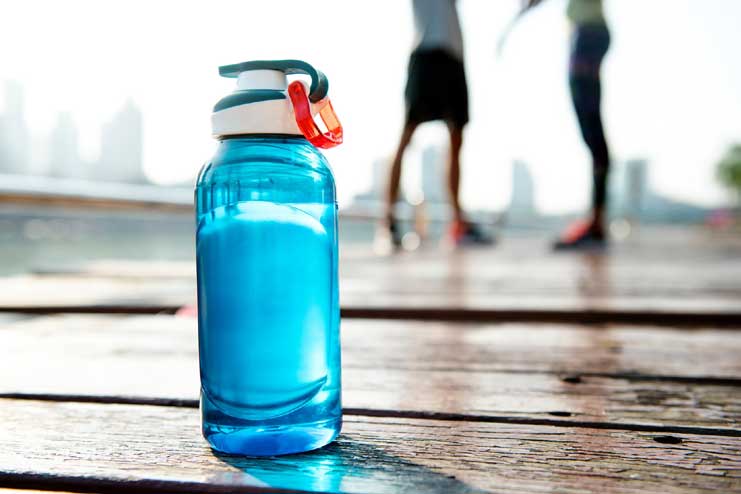 As we have discussed before, overhydration is when the fluid levels in the body are excess and dehydration is the complete opposite of that.
As we have discussed before, overhydration is when the fluid levels in the body are excess and dehydration is the complete opposite of that.
Both of these conditions are actually fatal for the body and does have the capability of inducing negative impacts on the body altogether. It is thus important to ensure that you do take the time out to pinpoint the differences between the two and tend to the same tactfully.
Even though the condition isn’t the best in terms of the impacts it leaves behind it is best assured that you keep your fluid balance in the body maintained, because the lack of this can end up causing negative impacts on the body.
How to Fix Overhydration?
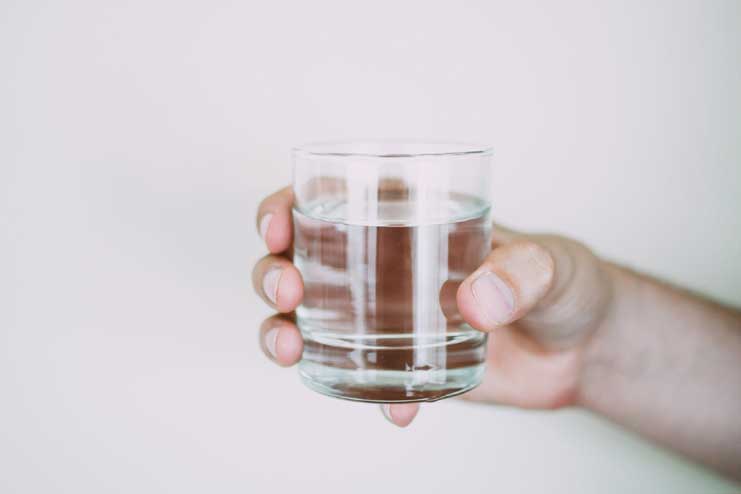 When it comes to the remedies for overhydration, the options aren’t that extensive because you need to pay close attention to the preventive measures rather than the remedies to fix it once the damage has been done.
When it comes to the remedies for overhydration, the options aren’t that extensive because you need to pay close attention to the preventive measures rather than the remedies to fix it once the damage has been done.
It goes without saying that there are ways in which you can keep a close eye and maintain the condition effectively.
To help you out with the ways to treat overhydration, we have suggested some of the best pointers to keep in mind.
1. Keep A Watch On The Water Intake
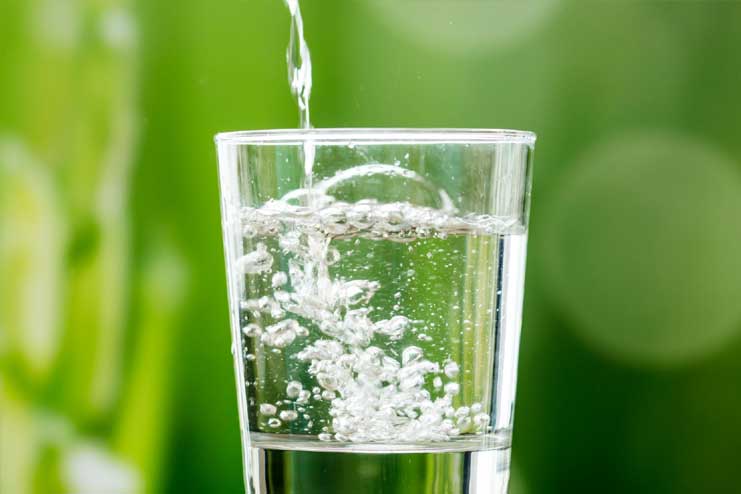 When it comes to the ways to get rid of overhydration, it is important to ensure that you do keep a close watch on the amount of water that you are drinking.
When it comes to the ways to get rid of overhydration, it is important to ensure that you do keep a close watch on the amount of water that you are drinking.
It happens the majority of the time that we end up consuming more water than what our body does require at a go. If you didn’t know, when you force excess water into the body, chances are that it causes a rampant change in the electrolyte balance in the body as well. This is one of the factors that do end up playing a very crucial role in this altogether.
When it comes to answering how much water an individual should drink on a daily basis, the amount depends on the individual, for the most part. Optimally, it is suggested than a healthy adult needs to consume 9-13 glasses of water on a daily basis.
2. Balance the Electrolytes
 One of the worst repercussions and impacts of overhydration is the fact that the same end up causing a complete imbalance of the electrolytes in the body. You wouldn’t technically realize this but hyponatremia or the low sodium concentration is often one of the side effects of overhydration.
One of the worst repercussions and impacts of overhydration is the fact that the same end up causing a complete imbalance of the electrolytes in the body. You wouldn’t technically realize this but hyponatremia or the low sodium concentration is often one of the side effects of overhydration.
In order to supplement that, it is important that you consume some salt little by little and not at one go because the same can end up making you more nauseous which is not something that you can handle.
3. Avoid High Water Content Fruits
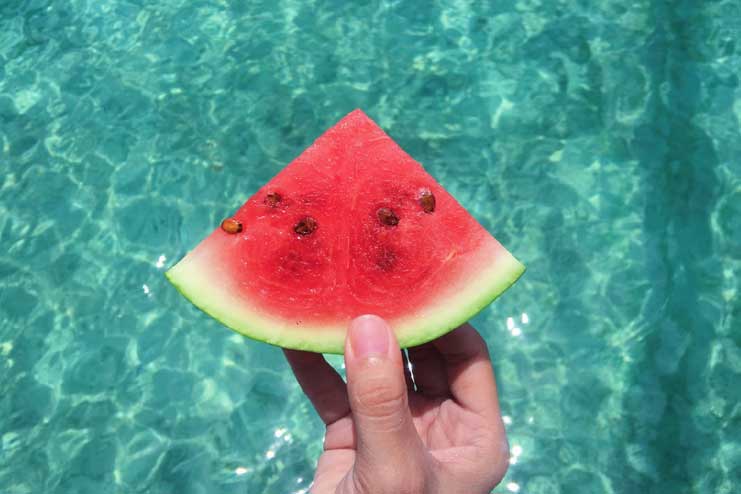 If you are already consuming more water through the day, it is necessary that you keep an eye out on the accessory water-rich fruits that you are consuming. These have been found to further have negative impacts on the body.
If you are already consuming more water through the day, it is necessary that you keep an eye out on the accessory water-rich fruits that you are consuming. These have been found to further have negative impacts on the body.
For the best results, it is best suggested to ensure that you prevent the excess consumption of the same altogether. If you know that you have drunk more water than what you should or what your body has excreted out, it is best to abstain yourself from the excess water-rich fruits like watermelon, cucumber and even tomato, for that matter.
Side Effects Of Overhydration
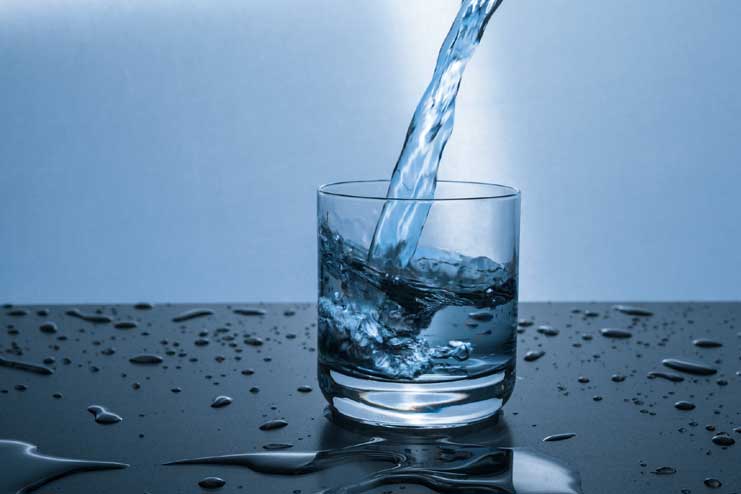 When it comes to the side effects of overhydration, the list is actually quite extensive and it is important that you keep them into consideration all the more.
When it comes to the side effects of overhydration, the list is actually quite extensive and it is important that you keep them into consideration all the more.
To help provide you with a better perspective, we are going to share some of the side effects that come along with the excess consumption of water in the body.
1. Hyponatremia
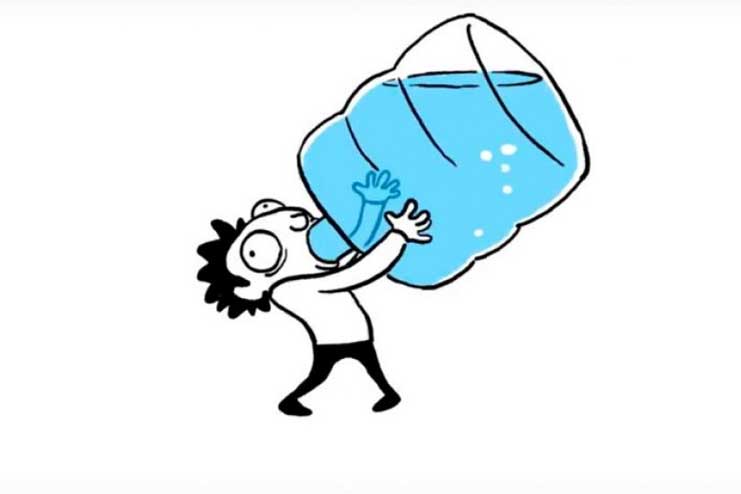
As we did touch base with it before, hyponatremia is a condition which is characterized by the lowered levels of the sodium below 136 mmol/litre of the blood serum.
Sodium plays a very crucial role in our body, be it for the cell signalling or even for the accessory processes that do come along with it. It is best suggested to ensure that you do keep a close eye on this because the consistent condition of hyponatremia can end up causing negative impacts on the body all the more.
2. Affects the Brain Function
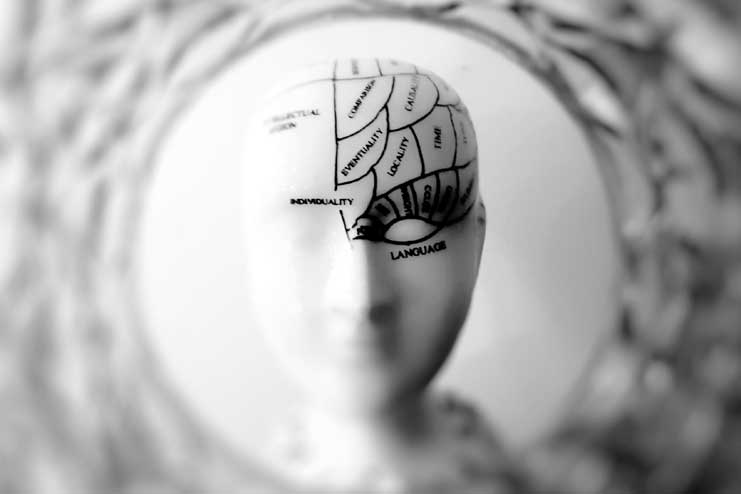 Much like how the overhydration can cause hyponatremia, the same has been found to have impacts on the brain function as well.
Much like how the overhydration can cause hyponatremia, the same has been found to have impacts on the brain function as well.
The lowered levels of sodium (R) in the bloodstream makes the brain swell up, thus putting excess pressure on the brain cavity and imposing negative impacts on the speech, walking and sometimes even psychosis as well as death if the condition isn’t tended to on time.
3. Inflammation of the cells
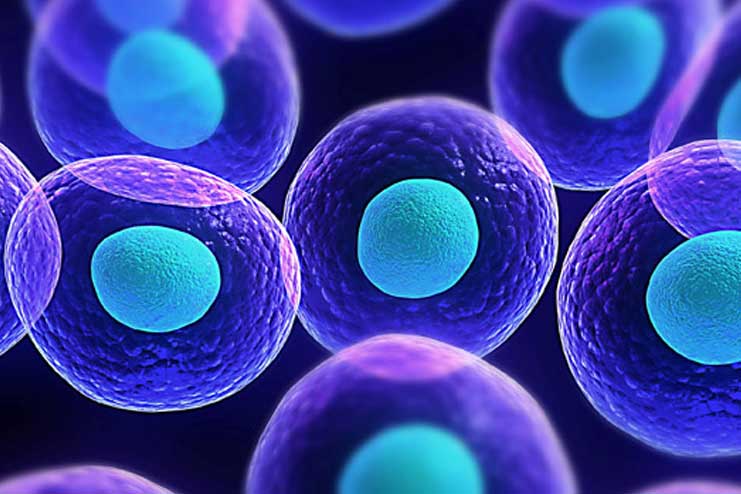
If you didn’t know better, each and every cell is the structural unit of your body. For your body to work efficiently, it is important that your cells are working just fine as well.
The condition of overhydration does have the capability of ending up causing inflammation or swelling of the cell (R) because of the influx of water into the cells because of the osmotic gradient.
Owing to the fact that the cells are semi-permeable, it becomes very easy for the influx of the excess water into the cells, thus causing the swelling that further ends up inducing negative impacts on the body.
The excess water inside the cells does have the probability of rupturing the cells too.
4. Impacts the Heart Function
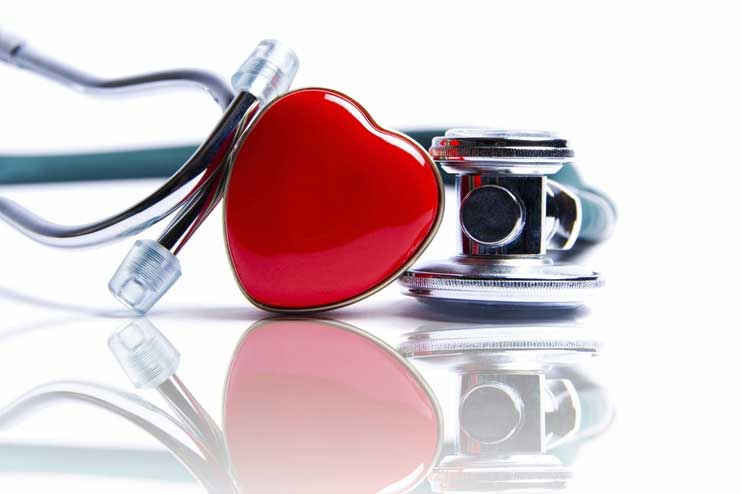 As crude, as it might sound, the excess of water consumption reflects on the blood volume in the body which has the capability of ending up causing issues with the heart function. It is important to ensure that you do take the time out and assess the situation because the lack of it can end up causing issues to your heart.
As crude, as it might sound, the excess of water consumption reflects on the blood volume in the body which has the capability of ending up causing issues with the heart function. It is important to ensure that you do take the time out and assess the situation because the lack of it can end up causing issues to your heart.
The excess blood volume in the body further impacts the heart because it has to work more to pump the blood to the various parts of the body. It is thus important to ensure that you take the time out to look into it and manage the water intake as well.
5. Hypokalemia
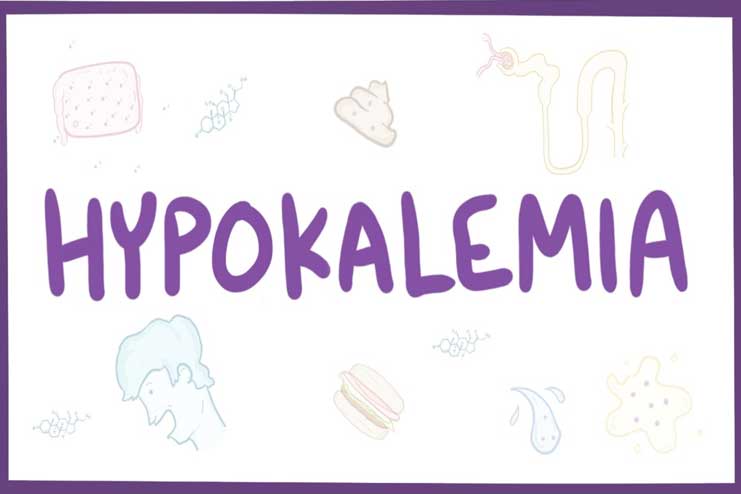
Much like how the overhydration impacts the sodium levels in the body; the same does have similar impacts on the potassium levels in the body.
You wouldn’t technically realize this but even the imbalance in the potassium levels in the body does have impacts on the body functions. While the potassium plays a very important role in the active potential and the resting membrane potential in the body, the unreliable levels of the same do have the impacts in causing poor cell signalling.
The affected can even witness signs and symptoms of diarrhea and excessive sweating.
6. Overburdening on the Kidney
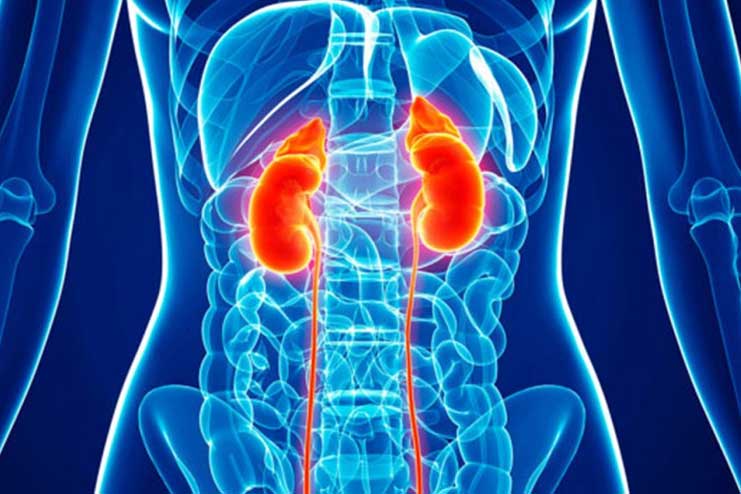
A kidney is a primary organ which is responsible for the maintenance of the fluid and electrolyte balance in the body.
When you drink excess water, chances are that the same will end up imposing negative impacts on the kidneys, causing hindrance to their functioning. It is thus best ensured that you do keep an eye out on the same to prevent any kind of unnecessary impacts on the kidney that you possibly can’t reverse later.
7. Affects the livers too
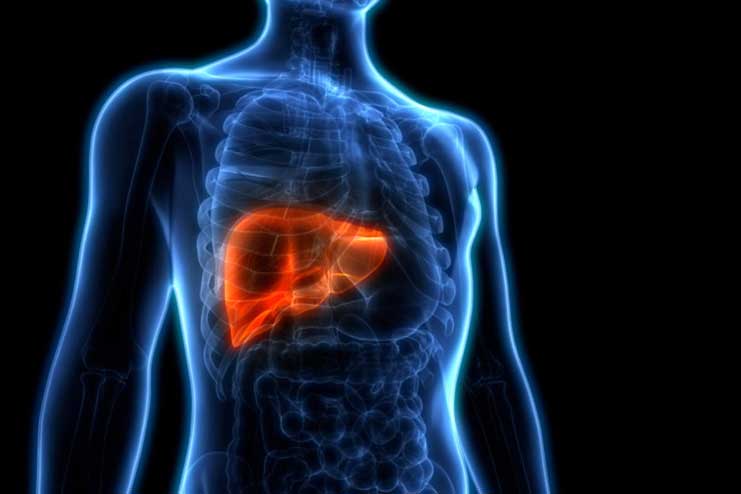
Much like the kidneys, the impacts of overhydration is witnessed on the liver as well. It is not just the excess water but even the unprecedented amount of iron with it can end up causing issues to your liver, making it hard for the same to keep sustaining itself through the functions altogether.
Iron overload along with overhydration can be a deadly combination for the liver as it can end up putting a strain on the liver functions.
8. Coma

A coma is a prolonged state of unconsciousness which is one of the most severe side effects and dangers of overhydration that many often experience.
Owing to the fact that the condition of overhydration does impose negative impacts on the functions of the visceral organs in the body, it is possible that the prolonged state of overburdening can end up causing the body to go into coma and stay in that state for a prolonged period of time if the necessary medical attention isn’t provided.
How to Prevent Overhydration?
 When it comes to the ways to treat overhydration, it is always better if you prevent the condition in the first place.
When it comes to the ways to treat overhydration, it is always better if you prevent the condition in the first place.
It is best suggested to ensure that you opt for some of the preventive measures that have been found fruitful in getting rid of the condition altogether.
- Drink water in moderation. It shouldn’t cross 9-13 glasses in a day
- Drink only when you are thirsty
- Keep a check on the water-rich fruits you are consuming
- Keep the fluids consume into account as well
- Seek medical help if you find something off consistently
When it comes to overhydration, there could very well be a number of side effects that you have no idea about. It is important to ensure that you keep certain factors in mind and not rush through the process because the same can very well end up causing negative impacts on the body all the more.
In this Article

















